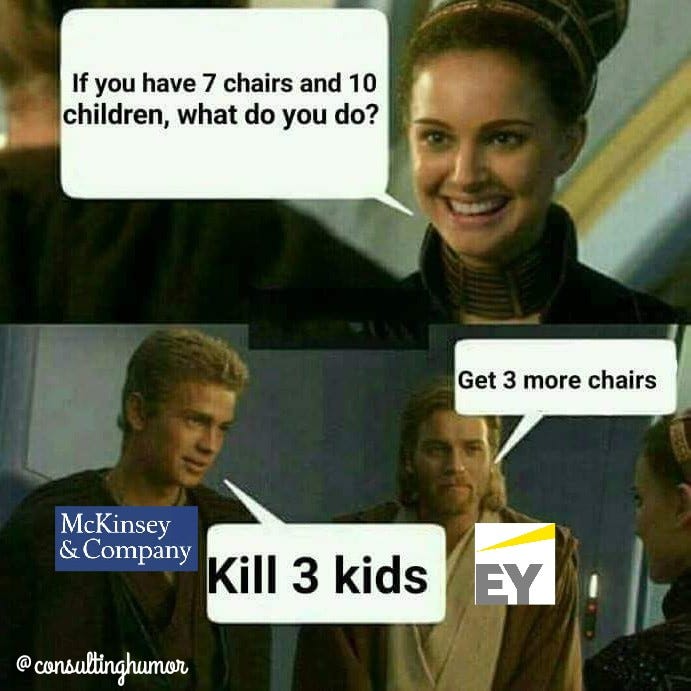Will AI Eat Consulting? A Consultant’s Perspective
Will it replace human consultants, or is it just another tool in the toolkit? A Consultant’s Perspective on Generative AI in Consulting
As AI tools become more entrenched in business operations, there's growing speculation about their impact on consulting firms. Will AI truly replace the strategic minds behind McKinsey’s power plays, or is it destined to be just another tool in the consultant’s arsenal? Particularly, if you’re in consulting, you might wonder if your job is on the chopping block and it's only natural to speculate whether these digital homunculi will outshine the human touch that’s been the backbone of consulting for decades.
Yet, there’s a counter-narrative that paints a different picture. Rather than wiping out jobs, AI could be the ultimate sidekick, amplifying consultants' capabilities rather than replacing them. So, let’s kick things off with a reality check: while AI is making headlines, it’s not exactly poised to take over the consulting world just yet. Sure, it can automate routine tasks and crunch numbers faster than you can say "big data," but when it comes to the strategic thinking and nuanced problem-solving that defines consulting, AI still has a long way to go. Many argue that AI excels at repetitive tasks but struggles with the creativity and deep understanding required for complex consulting challenges. Think of AI as the junior analyst who’s great at handling spreadsheets but still needs a mentor for the big presentations.
Sooo… here’s the twist: AI isn’t here to snatch away jobs but to shake up the way we work. It can streamline mundane tasks, leaving consultants more time for the high-value, human-centric stuff. Imagine AI as your new assistant, not your replacement. It helps with data analysis and report generation, but the real magic happens when it collaborates with human consultants who bring strategic insight and emotional intelligence to the table (I know this sounds a bit cliché… but it is what it is).
For those eyeing a move from engineering to consulting, there’s reason to be cautious but not terrified. AI may shift the landscape, but it’s unlikely to make consulting jobs obsolete. Instead, we might see a shift towards more tech-centric projects and expanded operations, especially overseas, as firms adapt to the evolving tools at their disposal. Particularly, one of the intriguing questions is how AI will fit into the corporate culture. There’s a human tendency to trust other humans over AI, even if the algorithms might be more accurate. This trust issue could impact how AI is adopted and perceived in strategic roles. After all, it’s easier to trust a human consultant with decades of experience than a machine, no matter how sophisticated.
The hype around AI can sometimes feel like a rollercoaster. Some see it as a revolutionary tool that will redefine efficiency, while others view it with skepticism, questioning its true impact. The reality is that while AI can enhance certain aspects of consulting, it’s not about to render the profession obsolete. Instead, it’s about leveraging AI to improve efficiency while preserving the human elements that make consulting unique. Giants like McKinsey are known for their expertise in people management and change implementation. The big question is whether these firms will adapt to the AI era by maintaining their value proposition or whether they’ll find themselves facing new challenges. AI might be a powerful tool, but it’s not a silver bullet for all consulting problems.
So, will AI eat consulting? The short answer is no. But it will change it. The future likely holds a blend of AI-powered efficiency and human expertise. AI will handle the repetitive tasks, while consultants will continue to bring the strategic and creative thinking that machines can’t quite replicate. In the end, it’s not about AI versus consulting; it’s about how they can work together to create something even better.



